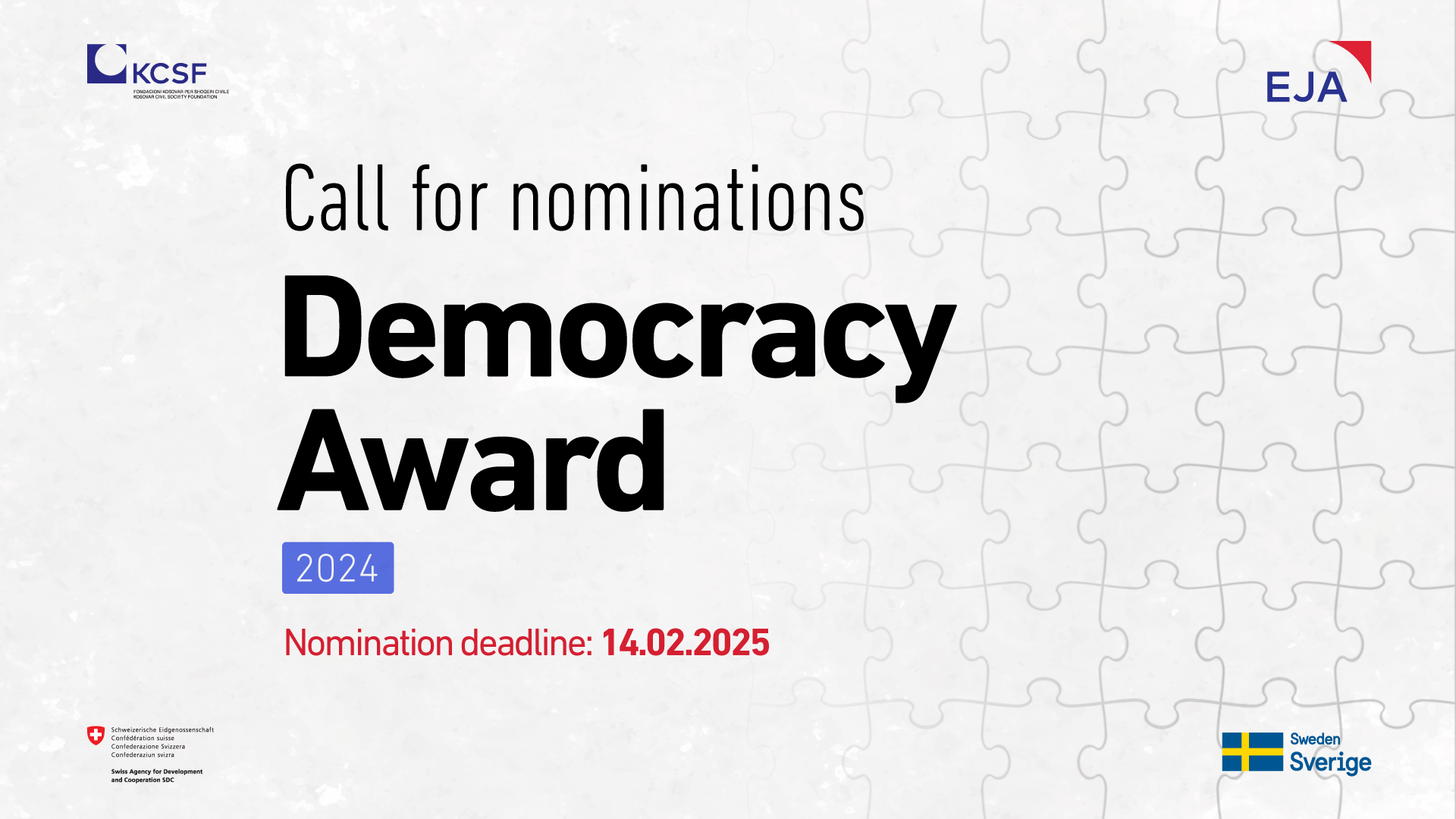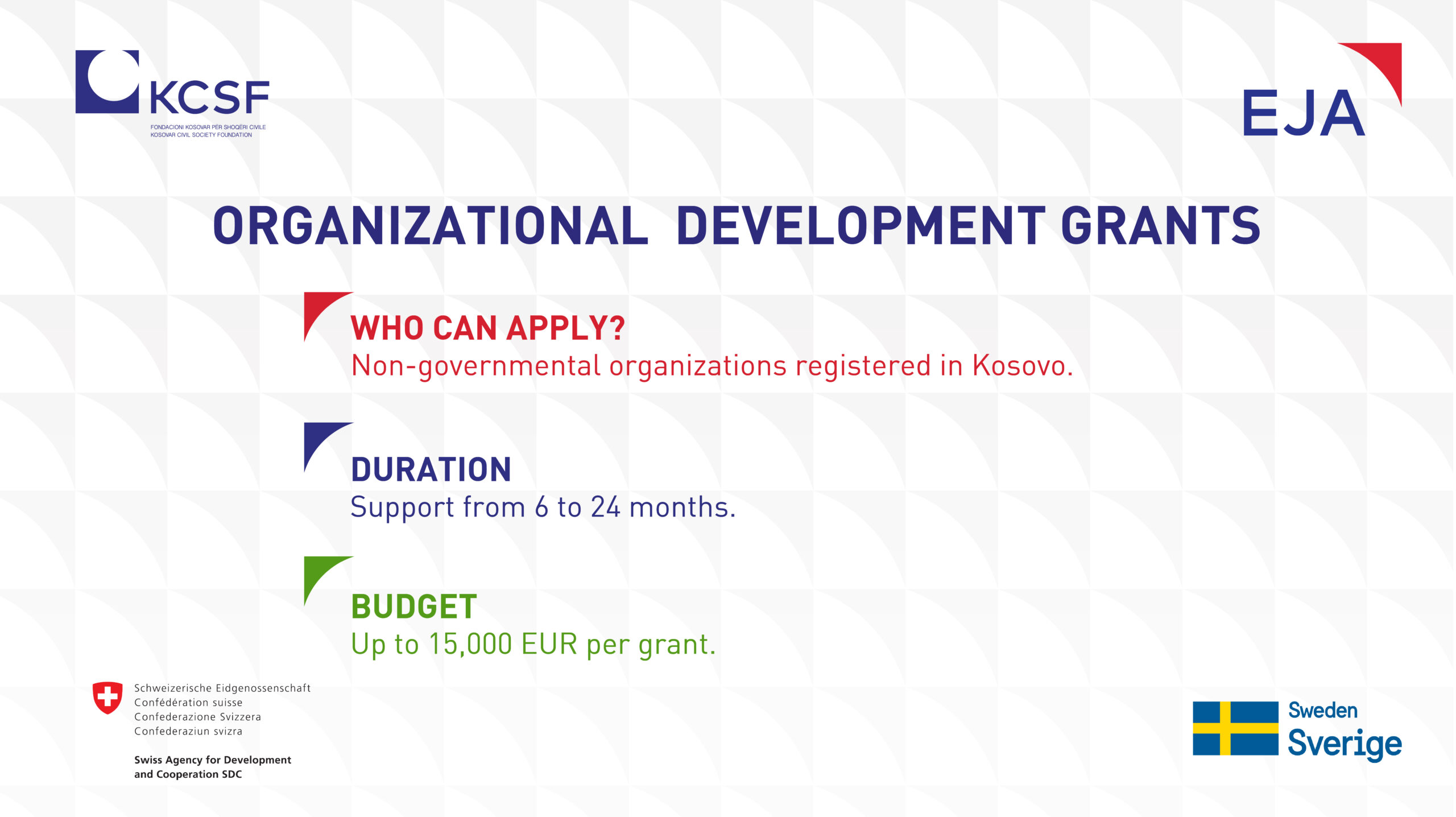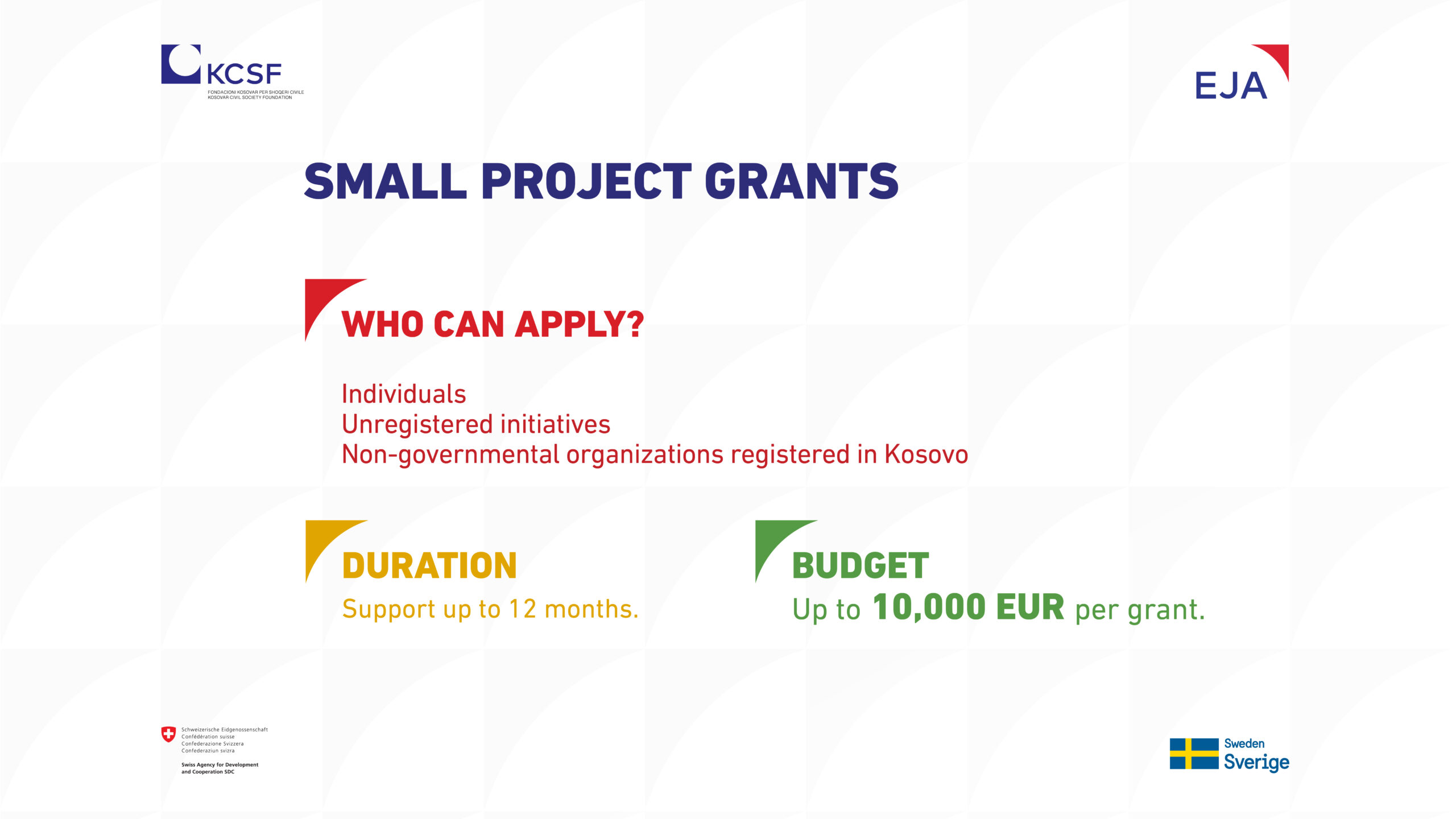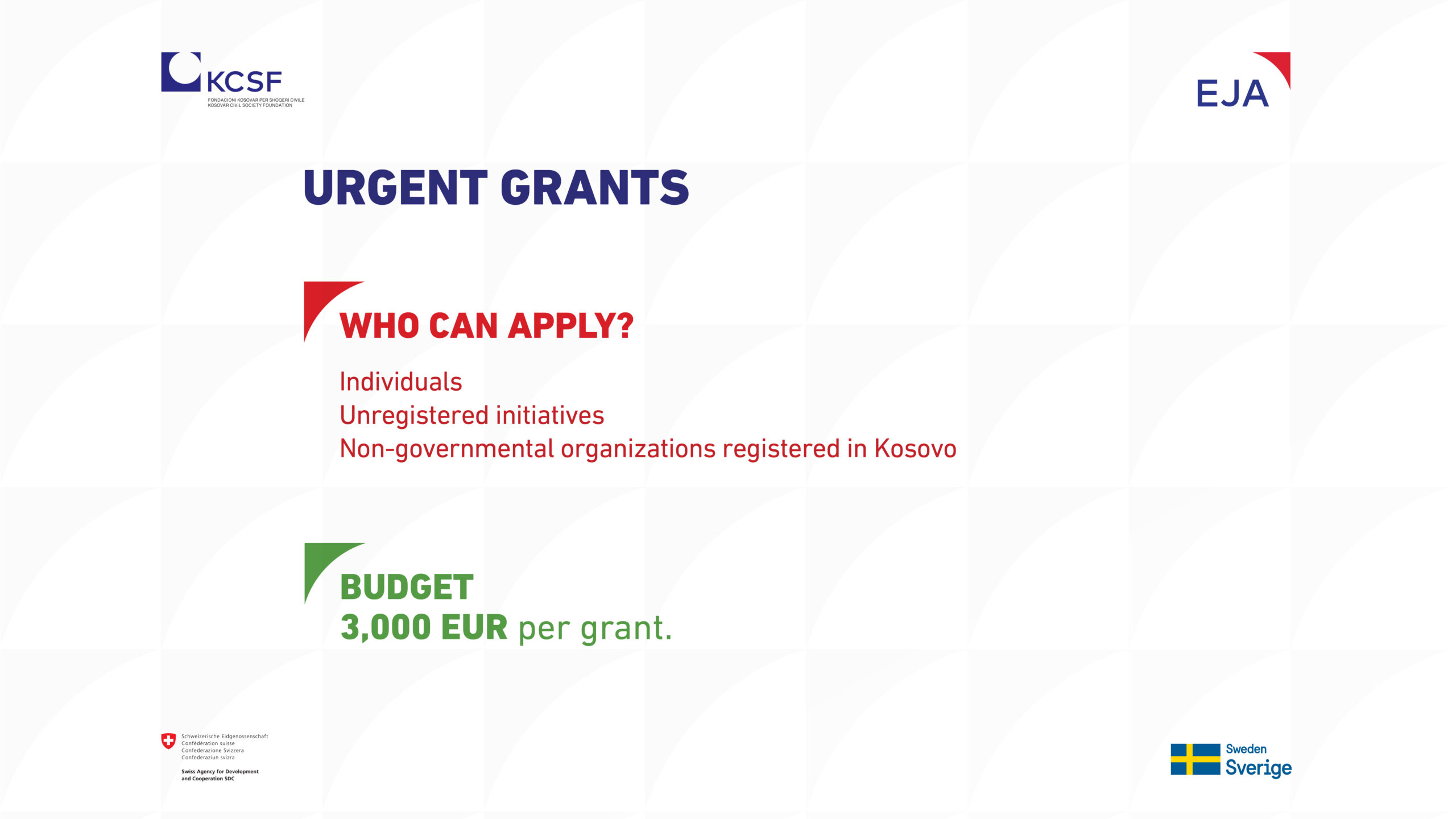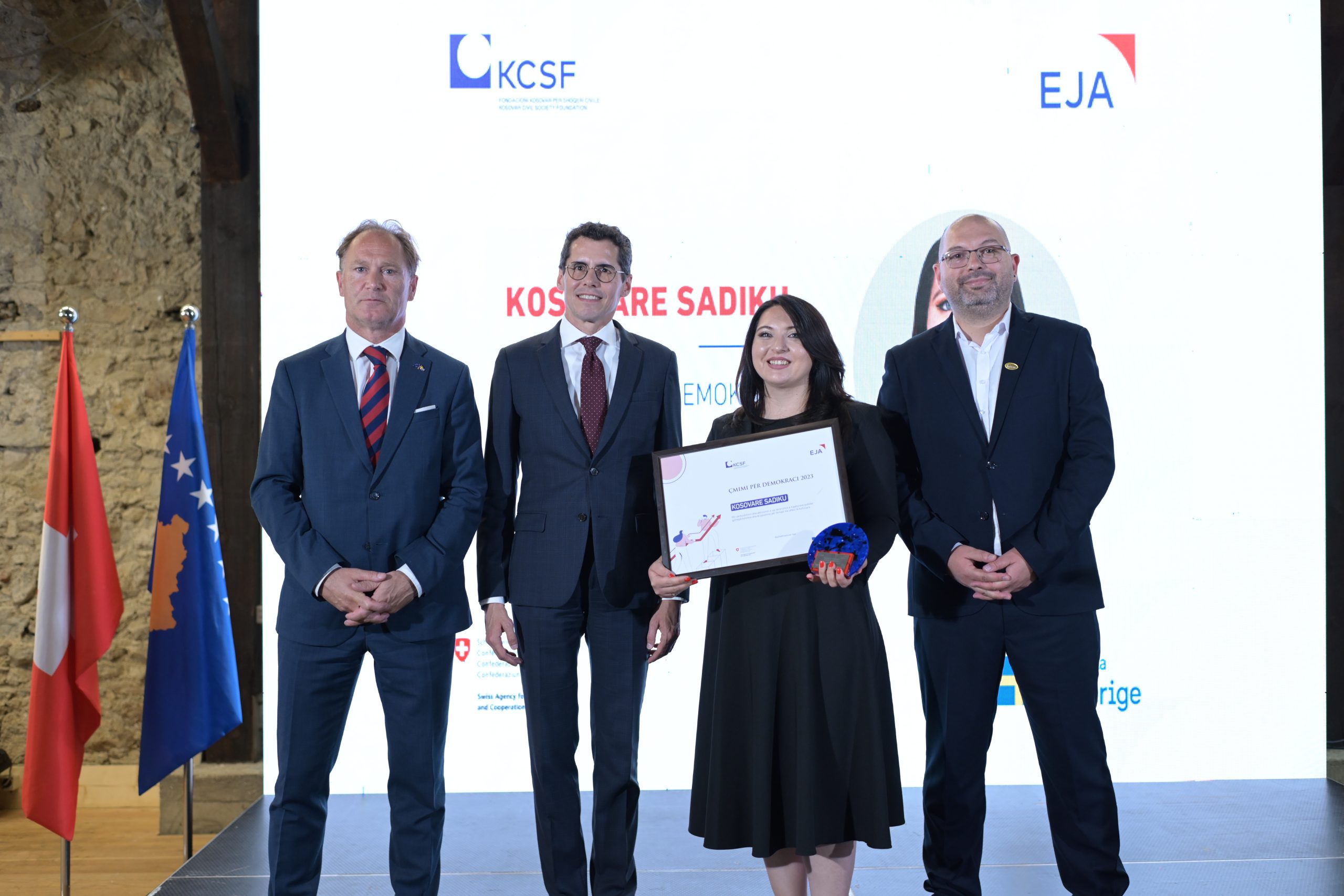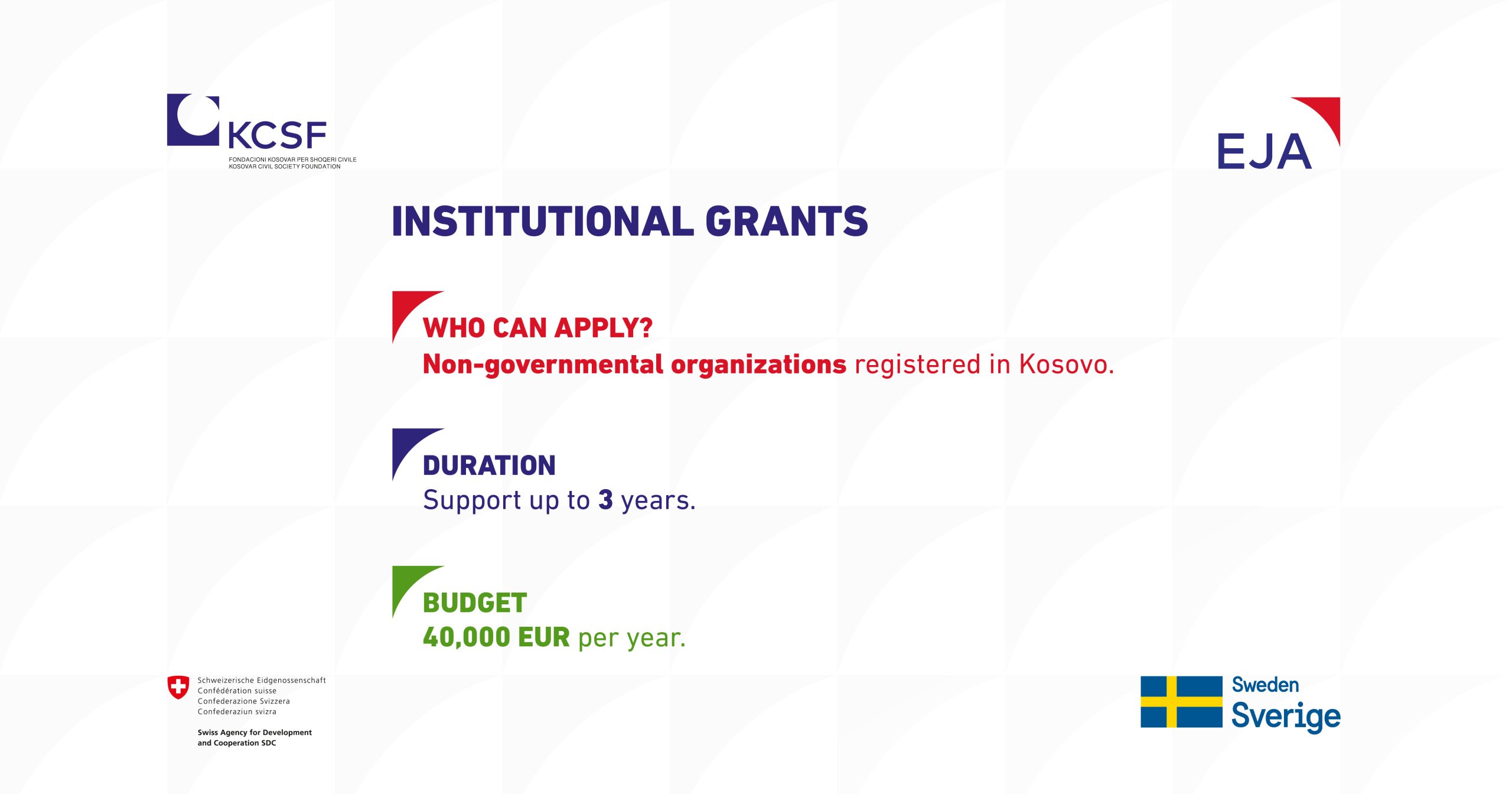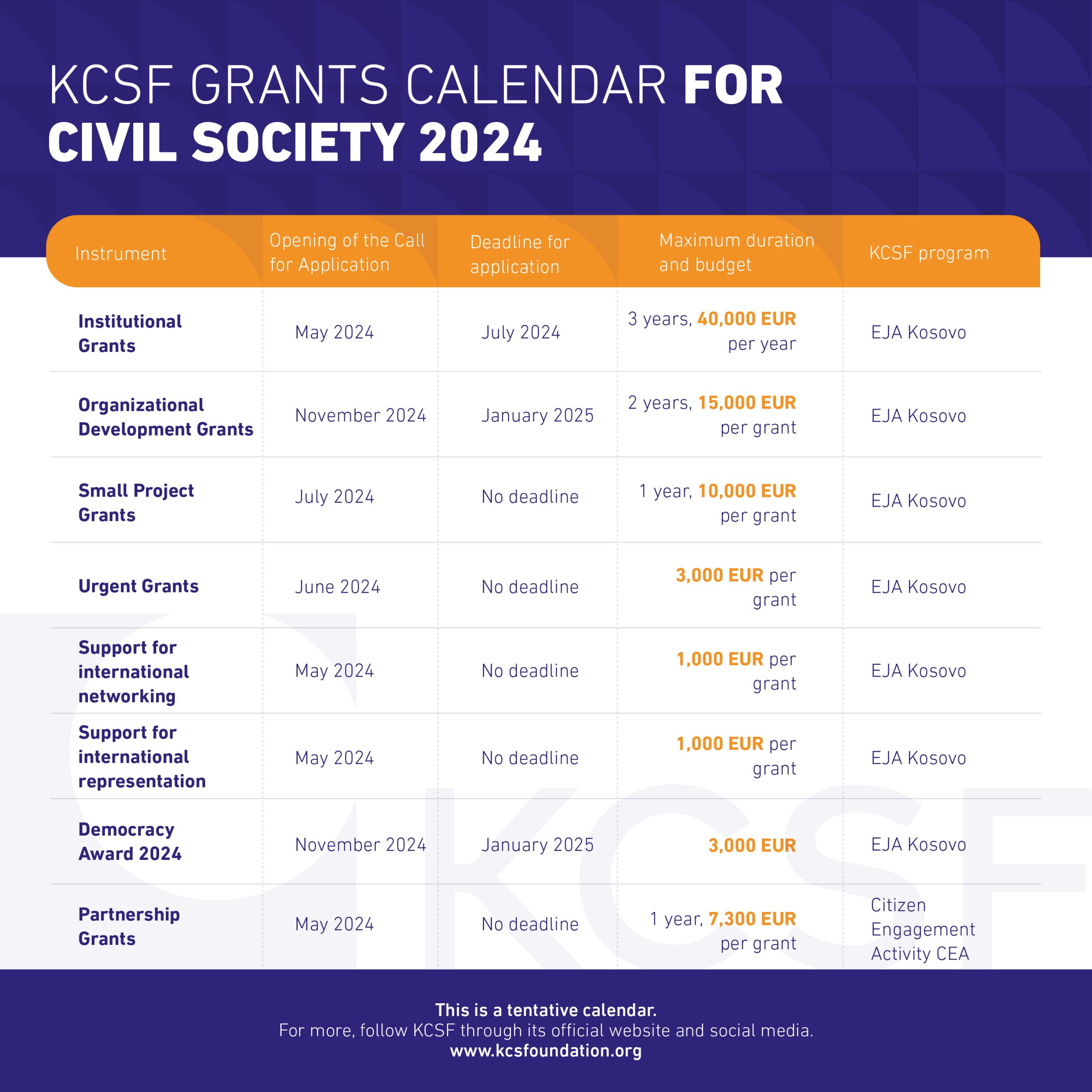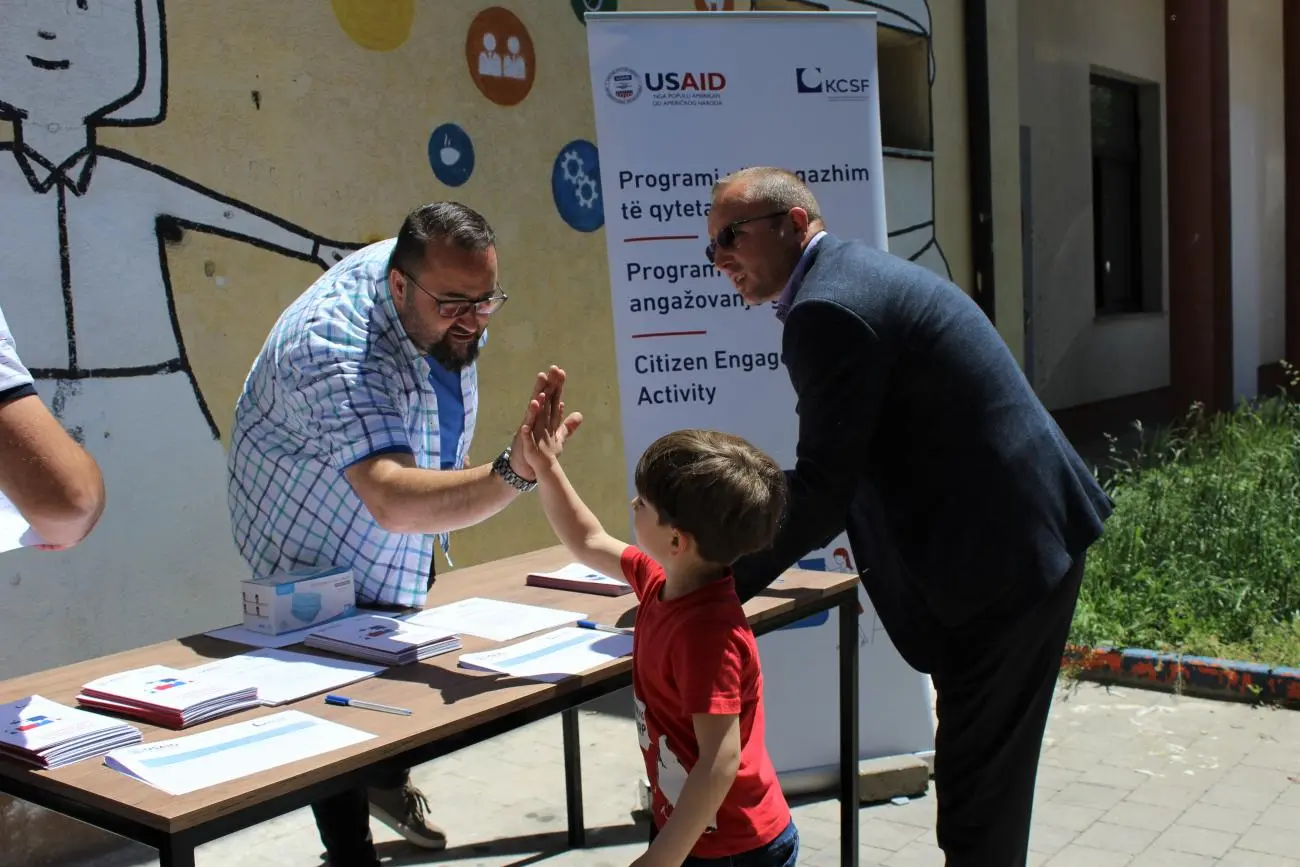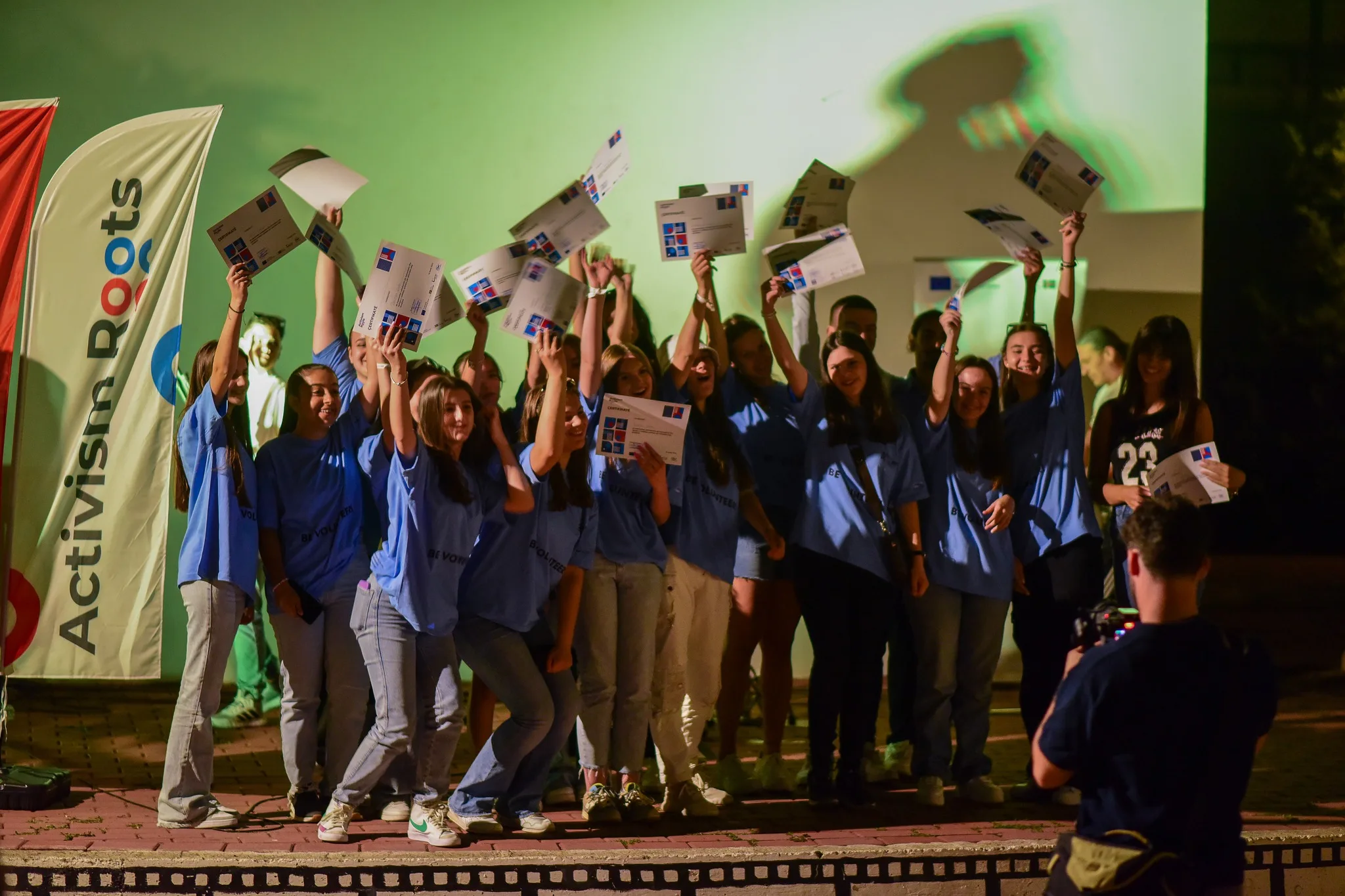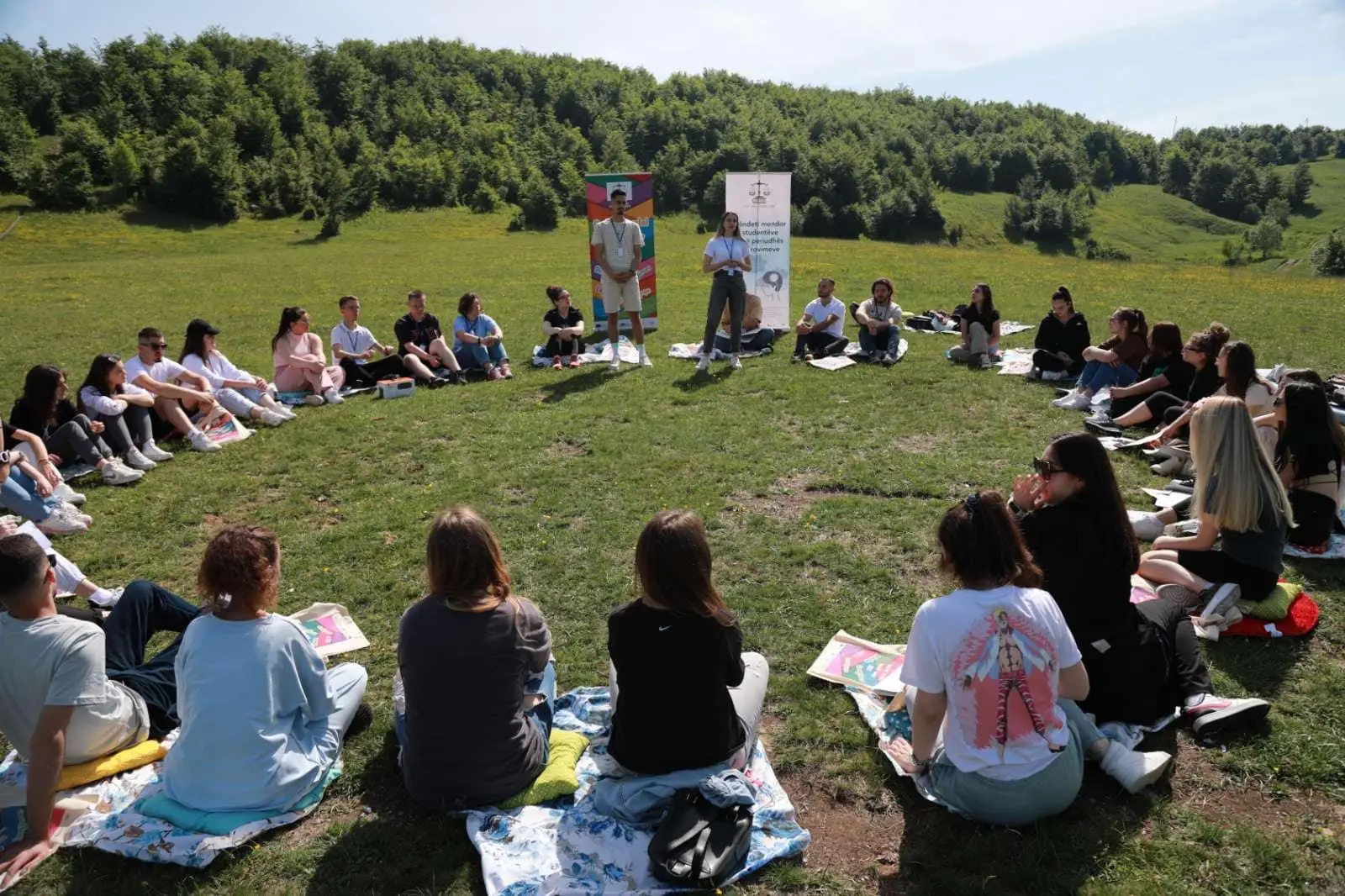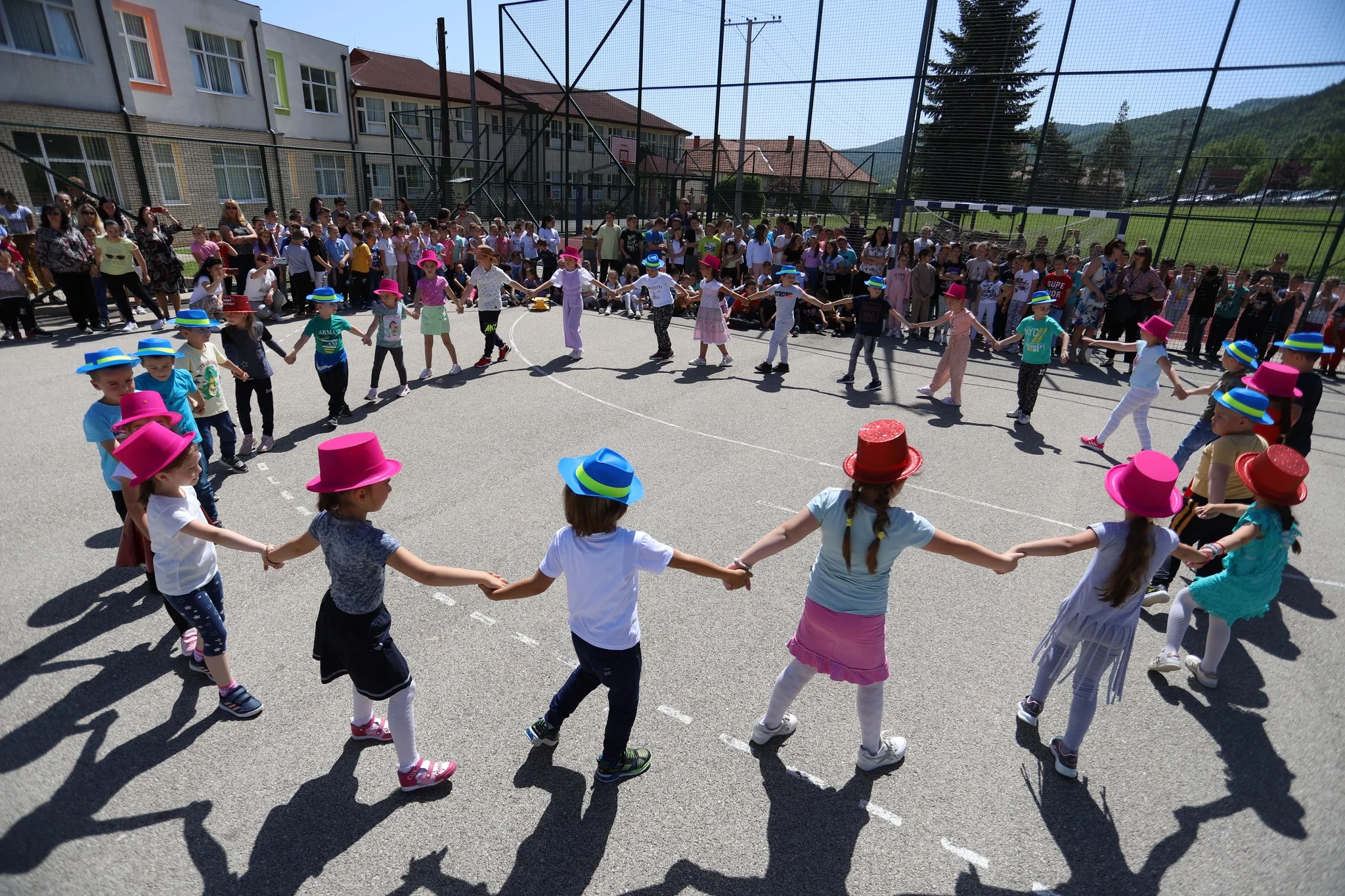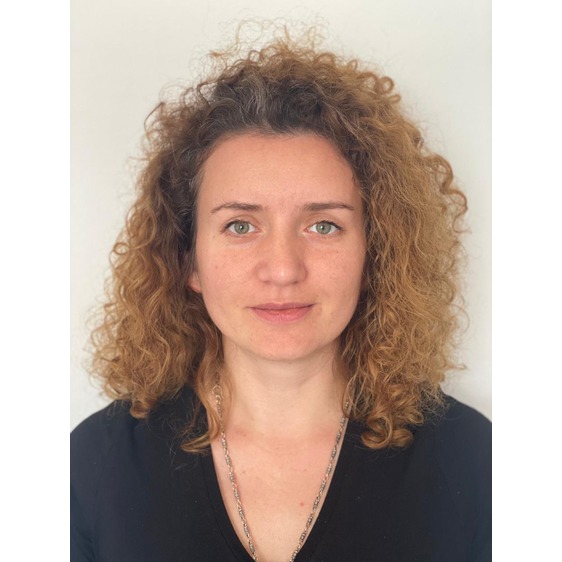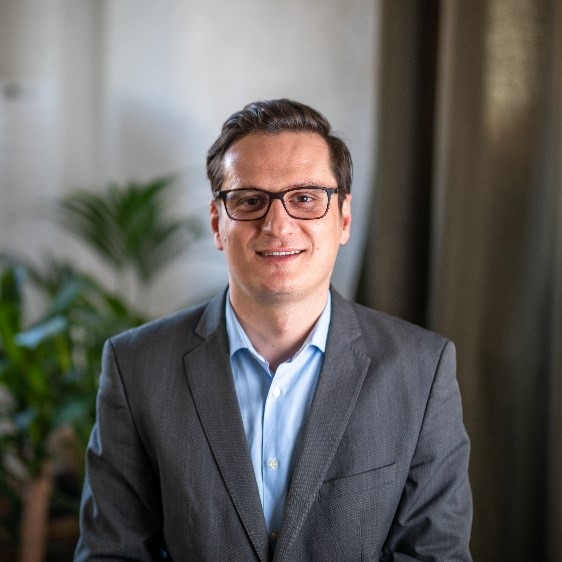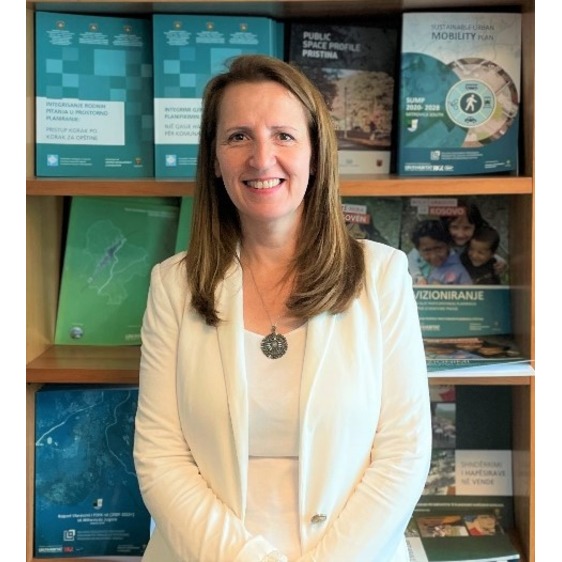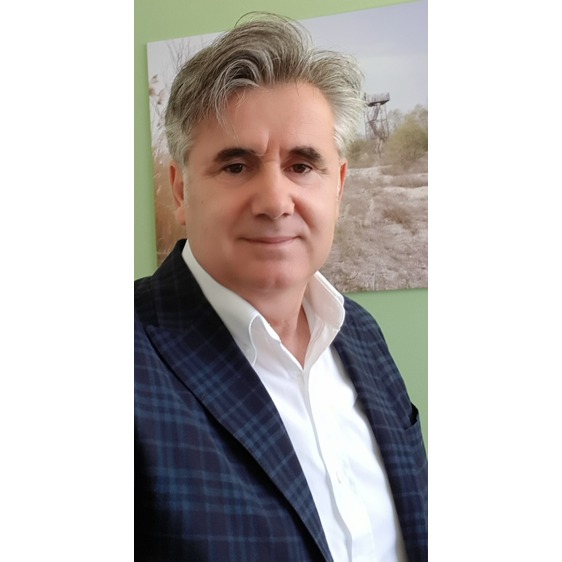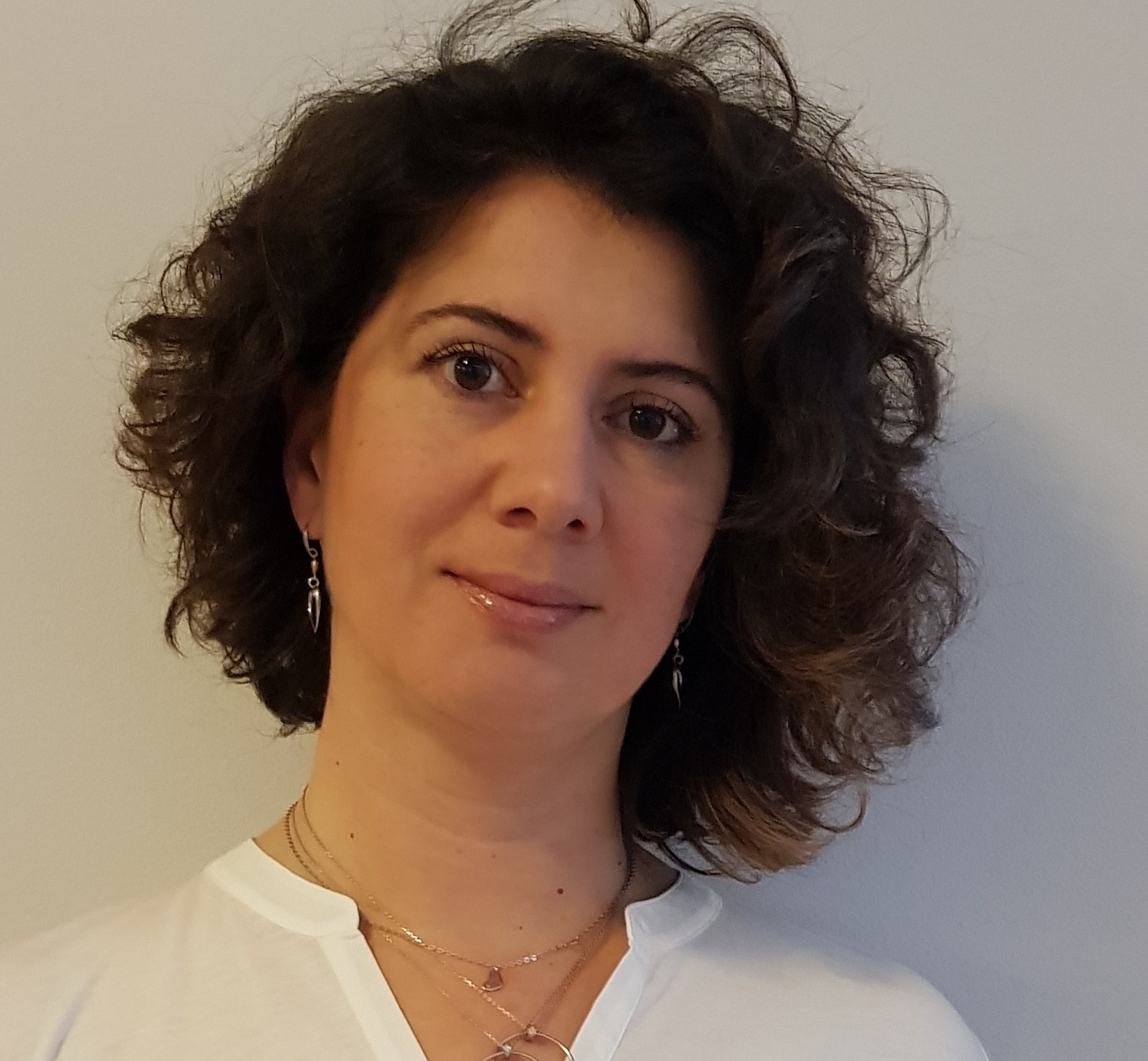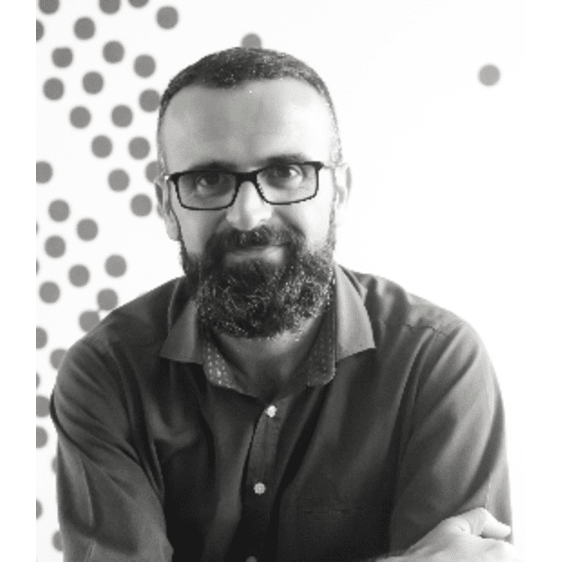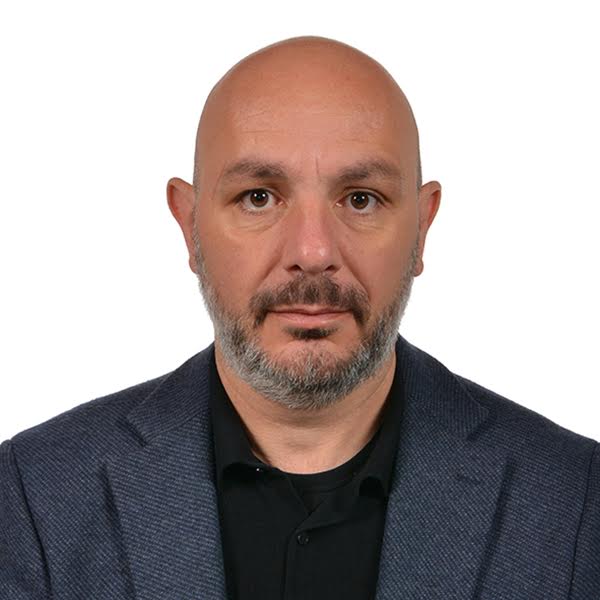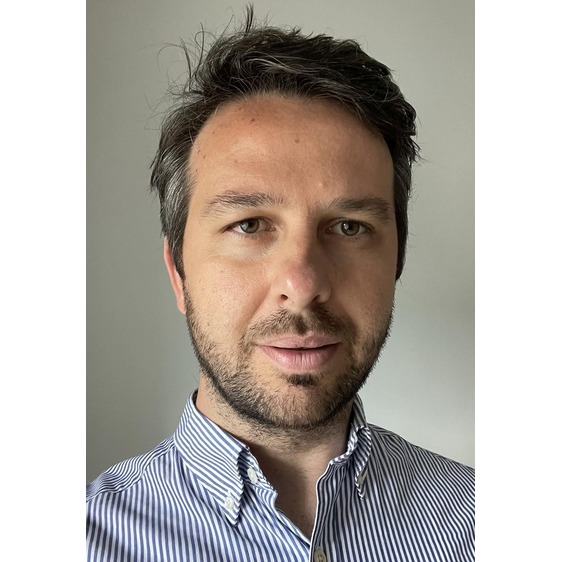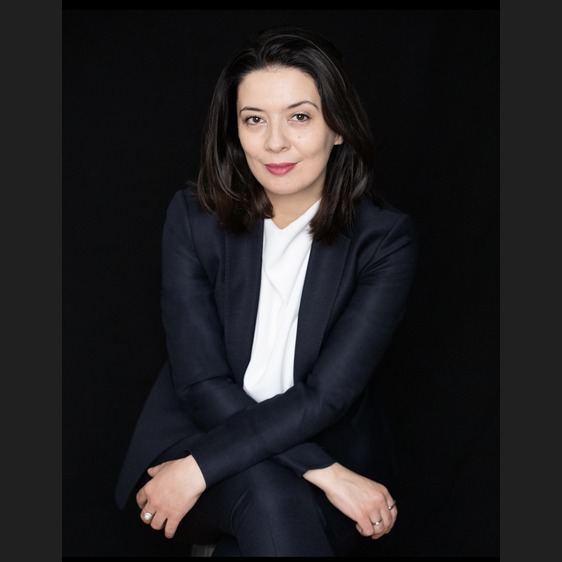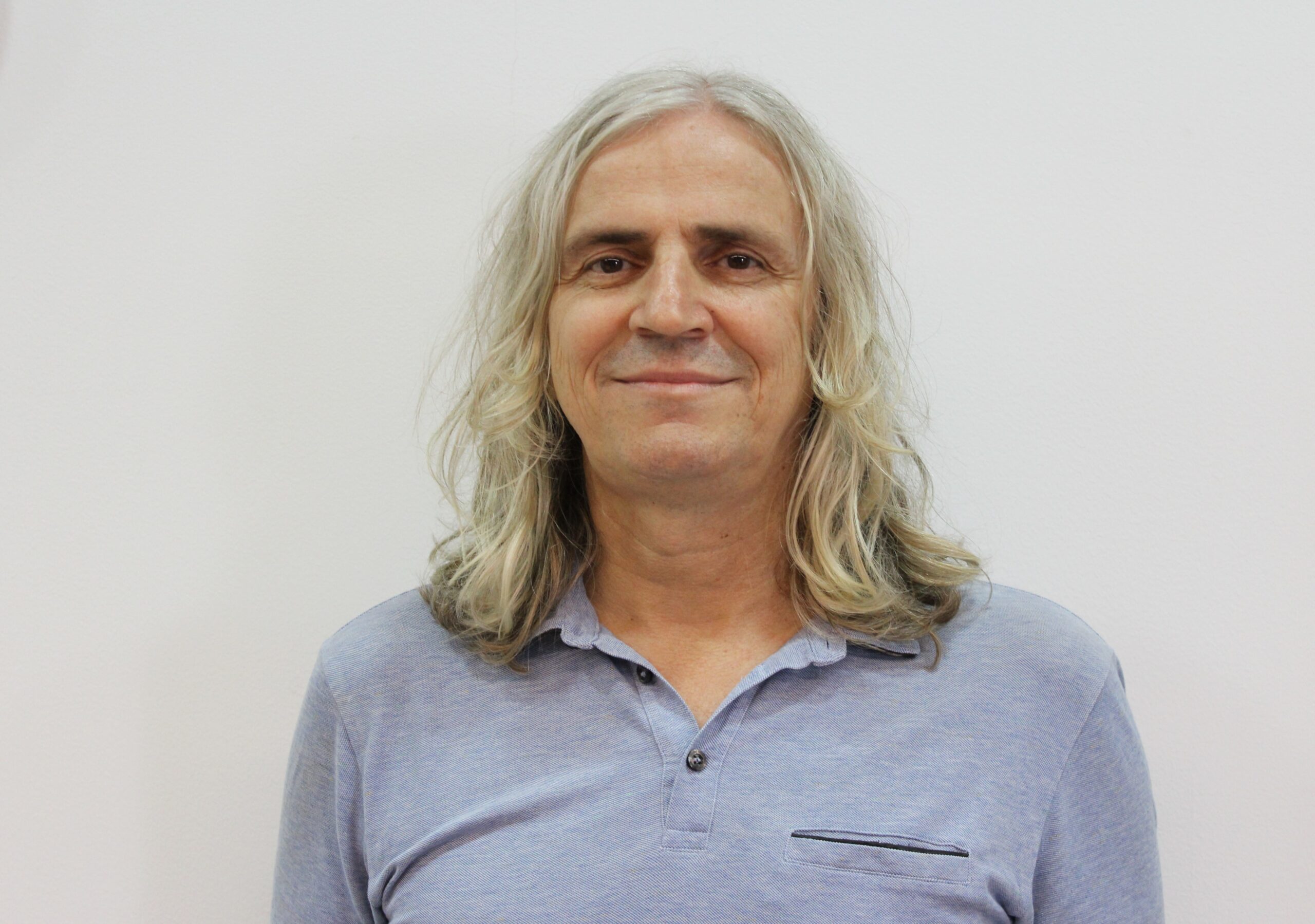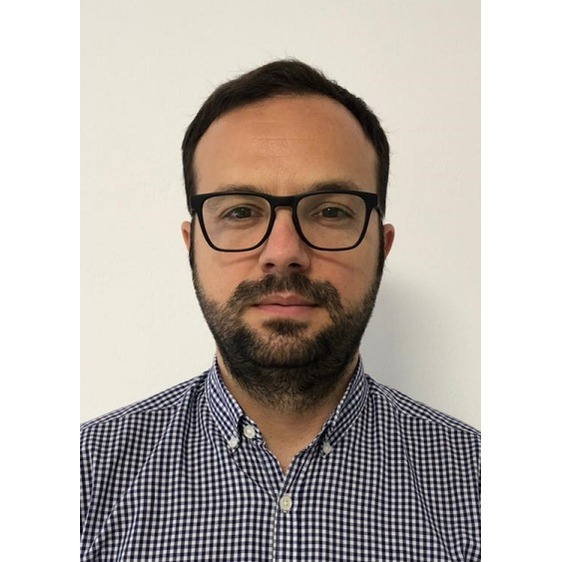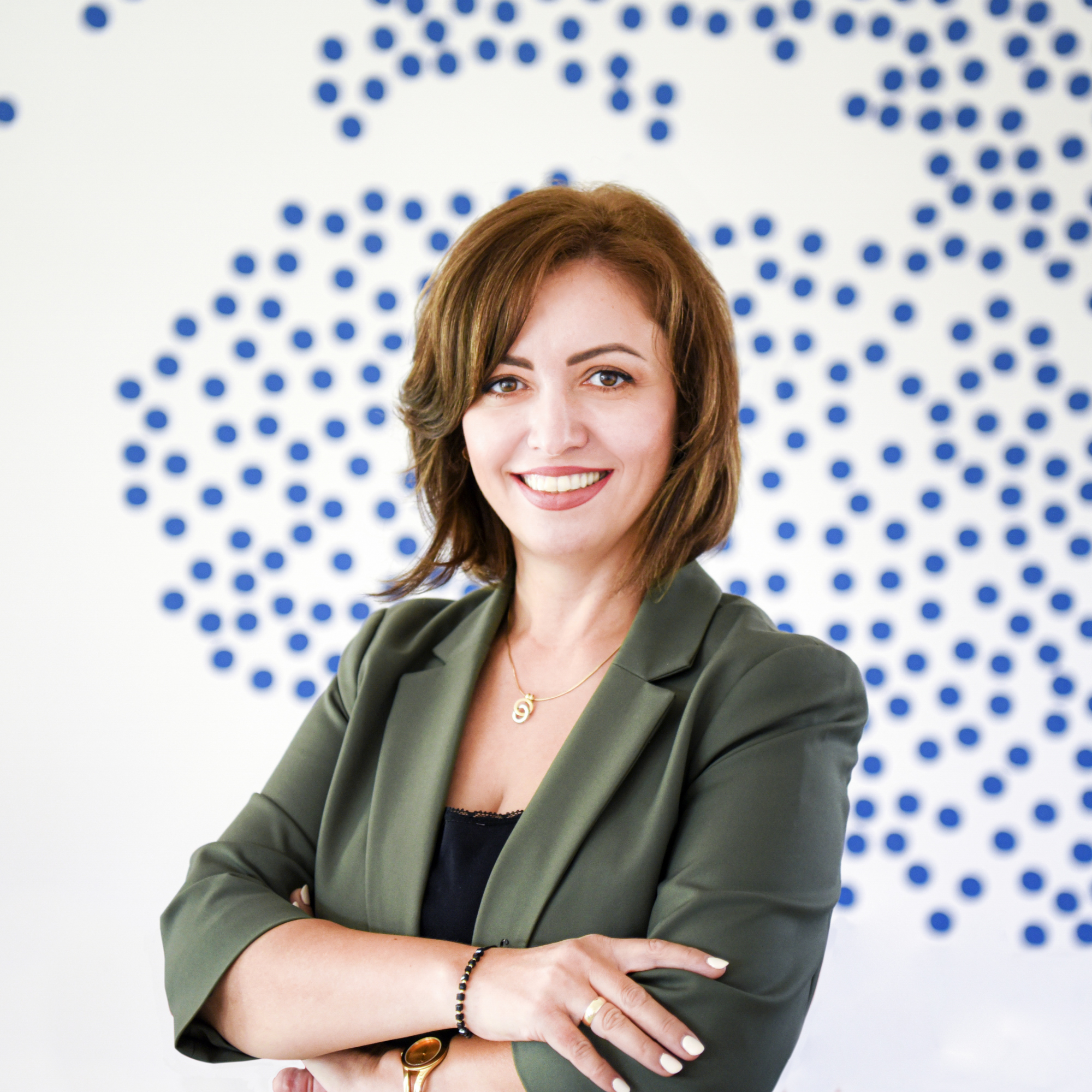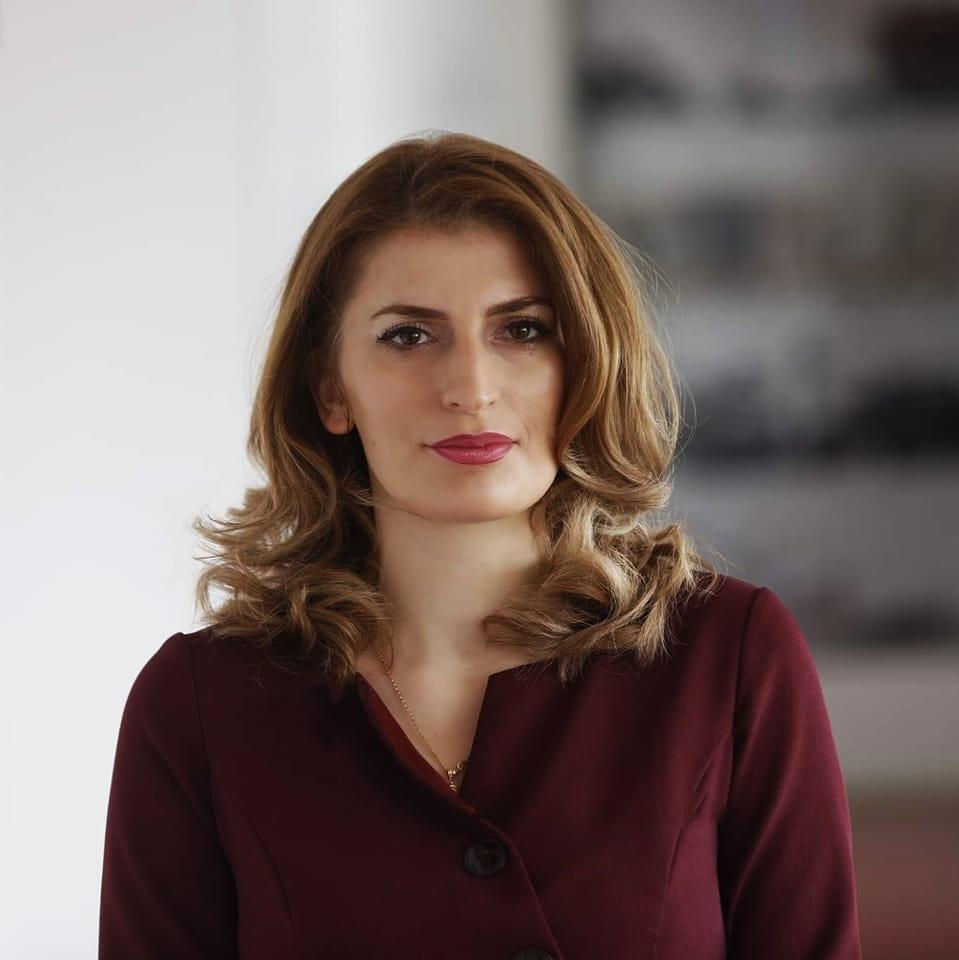1.Can we apply for the organizational development grant even though we have not yet received the confirmation of the registration from the Department for NGOs?
One of the mandatory documents for this call is NGO registration certificate issued by the Department for NGOs. If you do not have this document before the application deadline, you cannot apply in this call and have to wait until the next call will be open.
2. Where can we find the application form?
All the information, including the necessary documents for the application, can be found on our website.
3. Will an information session be held for this type of grant?
The information session for organizational development grant will be held online on Monday at 10:00 am, 18.01.2021, and, in the meantime, the link to join the session will be available on our website www.kcsfoundation.org and on our page on Facebook https://bit.ly/3sr5fLJ.
4. Does the grant also include the purchase of equipment and staff training?
Yes, the grant may also provide the purchase of equipment and staff training, if it is considered that those type of expenses will help the organizational development and program goals of organization. Your application will be reviewed against the call criteria.
5. As a new organization, can we have your support in preparing the application?
All the necessary information to apply for organizational development grant, including application documents, can be found on our website, at this link: https://bit.ly/38YrQX9. We encourage you to review these documents, follow the application steps in detail and participate in the information session that will be held on Monday, 18.01.2021, at 10:00. The link of the information session will be published on our website and Facebook page.
6. When is the deadline for application?
The deadline for application for organizational development grant is 25.01.2021.
7. As a new organization, established in 2020, are we eligible to apply in this call? If yes, how should we address the request for financial reports for the last two years since we have not yet completed a full year?
Even though you are a new organization, you are eligible to apply. As a organization established recently, you can only send the financial statements for the period since you were established, therefore, the request for financial reports for the last two years does not apply in your case.
8. Does it play a role in the evaluation process if we have implemented only a few voluntary projects, but we did not have the opportunity to be a beneficiary of any grant?
Even though you have not been a beneficiary of any grant, this does not prevent you to apply in this call. Your application will be reviewed against the call criteria according to the application guideline.
9. For the annual financial statements or auditor’s reports, what years are calculated as last two years?
The last two years are calculated 2018 and 2019 as the deadline of the call is late January. But, in case you can submit the documents (auditor reports or financial statements) for 2020, then last two years are calculated as 2019 and 2020.
10. Are we eligible to apply for technical equipment that will directly affect the organizational development?
If you consider that the purchase of equipment will have a direct impact on the organizational development and the reasoning can be presented in the application documents, you can apply for technical equipment. Your application will be reviewed against the set criteria.
11. If we do not have an audit report, because we do not have the financial means to engage a company to audit our organization, does this prevents us from applying?
According to the rules set forth in the application guidelines, the annual financial statements or auditor’s reports for the last two (2) years must be submitted. So, in case you do not have the audit report, then you can submit the financial statements and then your application will be reviewed against the set criteria.
12. Is it allowed to purchase equipment abroad?
If you consider that the purchase of equipment will have a direct impact on the organizational development and the reasoning can be presented in the application documents, you can apply for technical equipment. In this case, you are advised to look the list of ineligible costs (such as Customs, VAT, etc.) for the equipment and software in case they are to be purchased outside Kosovo. Your application will be reviewed against the set criteria.
13. According to the application guidelines, the duration of the project is up to 24 months, what is the issue of duration if we buy equipment; do you monitor the project up to 24 months?
According to the application guidelines, the maximum duration of the grant for which the organization is allowed to apply is 24 months. Therefore, it is not necessary for the grant to last 24 months, yet it is the maximum possible duration. It depends on the needs of the organization and how the applicant organization envisages the planning of organizational development. We emphasize that not all expenses and activities should last throughout the entire duration of the grant, whereby this depends on their type.
14. If our aim is to work with women only, are we entitled to apply if we do not meet gender equality?
The EJA Kosovo program aims to ensure that supported interventions take into account the gender aspect, aiming at gender equality and taking care not to contribute to harmful stereotypes. Hence, as long as your work addresses this aspect in line with the aims of EJA Kosovo, you can apply.
15. Are there restrictions for organizations that have KCSF funded projects in applying for this grant?
The only limitation is in the case when organization is a beneficiary of the institutional grant, which by its very nature also contains the organizational development component. In such cases the applicant cannot apply for organizational development grant. There are no other restrictions since other grants are of different nature and there is no overlap of interventions.
16. Where is the statement on politically exposed persons (PEP) located?
This statement can be found on the last page of the application form. There is also an explanation of this statement and the part which must be filled-in by the applicant organization.
17. Can we include international experts, trainers, or consultants in this call for applications?
Yes, you can plan engagement of international experts or trainers in your application, but this requires clear justification why his/her engagement is necessary to achieve the organizational development aims of the grant.
18. Are we, as the Kosovo Producers Club, representing (manufacturing) businesses, entitled to apply for this grant?
No, organizations representing businesses are not eligible to apply in our calls
19. Can a portion of the funds for organizational development be directed to the arrangement of the organization’s premises (renovation), purchase of necessary technologies (equipment) and the training of staff for co-working (with local and international trainers)?
If organizational development is going to be achieved through these activities and will help achieve the program aim of the organization and if you justify these expenses in the budget, then you can use these funds.
20. If the members of the board of the institute are business representatives, will the structure of the board of directors penalize the institute in this case in applying for your program for organizational development grants?
According to eligibility criteria for EJA Kosovo program, NGOs representing businesses or similar entities for which it is clear that they have the financial capacity to cover the expenses of their organization or support their activities are not targeted by KCSF grants. Consequently, your institute falls into this group.
21. Can organizations without office space apply? If so, how will the “office visit” be carried out?
Regarding the office visit, this means meeting with the organization’s staff about organizational capacity, internal governance, and financial management. The office does not necessarily represent a physical space where the organization operates. As long as the organization has its practices and documents, if it is shortlisted, the meeting and discussion of these points can take place in another suitable space. The lack of office does not hinder organizational capacity building.
22. Can they apply for grants for organizational development, urgent and project grants? Do these grants exclude each other, or can the same organization apply with different content and contexts?
Within the EJA Kosovo program, the instruments are different by nature and do not overlap as applicant address various issues. Consequently, the applicant can apply and submit an application in every call. However, we must emphasize that the organization cannot implement the organizational development grant and the project grant at the same time. Therefore, if the evaluation for all applications is positive, the organization must decide which grant will prioritize for implementation.
23. Are the financial statements of the organization issued by TAK accepted?
The annual financial statements issued by TAK are eligible and supplement item 9 of the mandatory documents in the application guidelines.
24. If the organization does not have an auditor’s report, can the organization apply only with financial statements for the last two years?
As stated already in the guidelines, auditor reports are necessary if the applying organization is required to have an auditor report or if the organization possesses one despite not having an obligation. If the organization does not have such a report and is not required to do so, then the financial statements cover this request.
